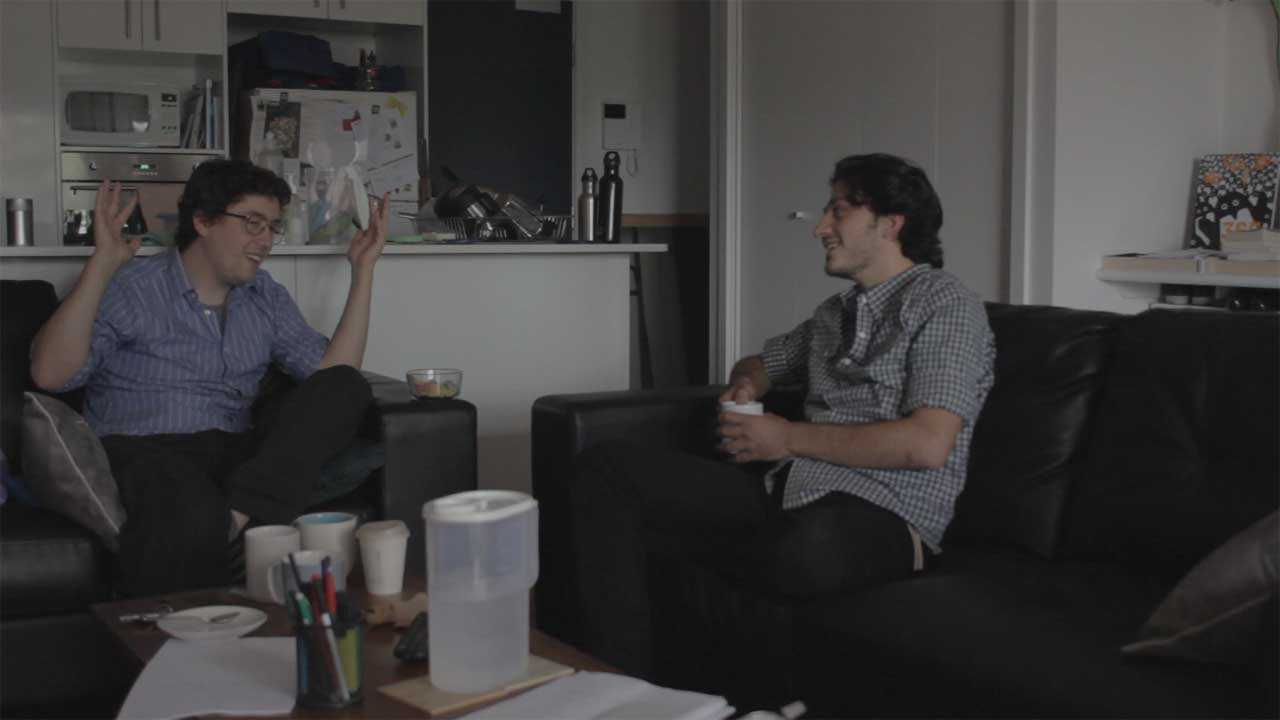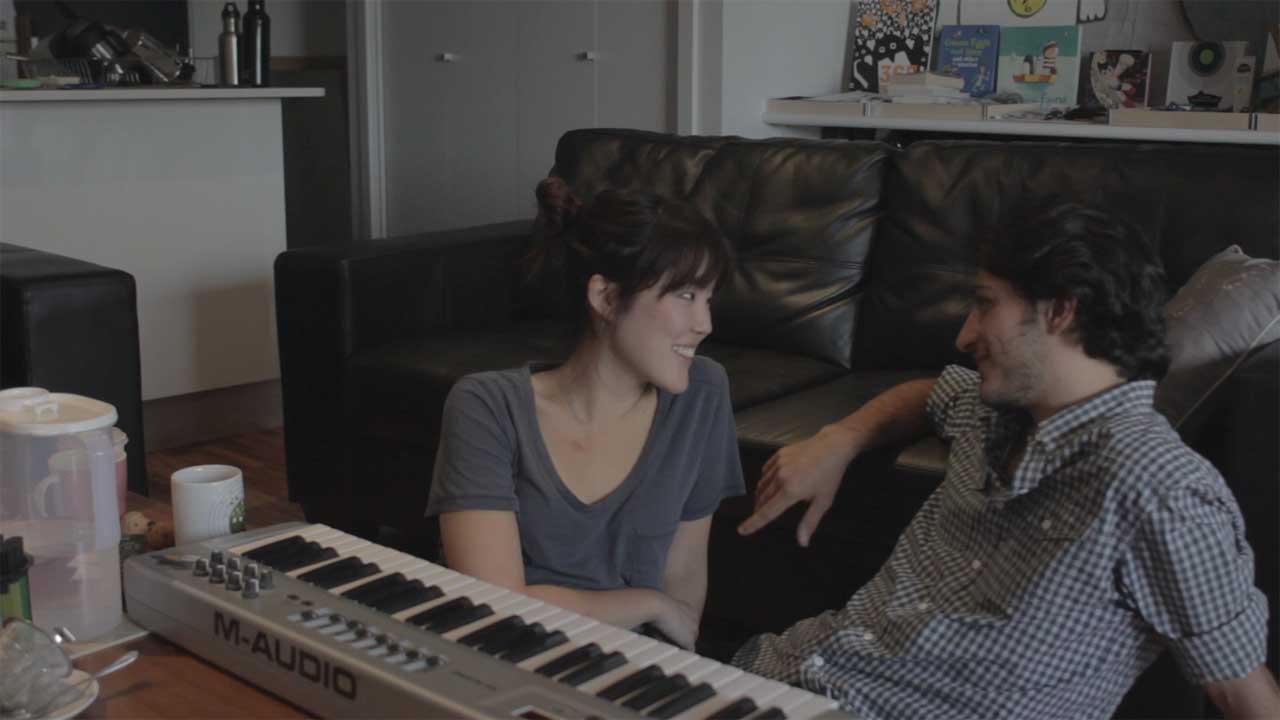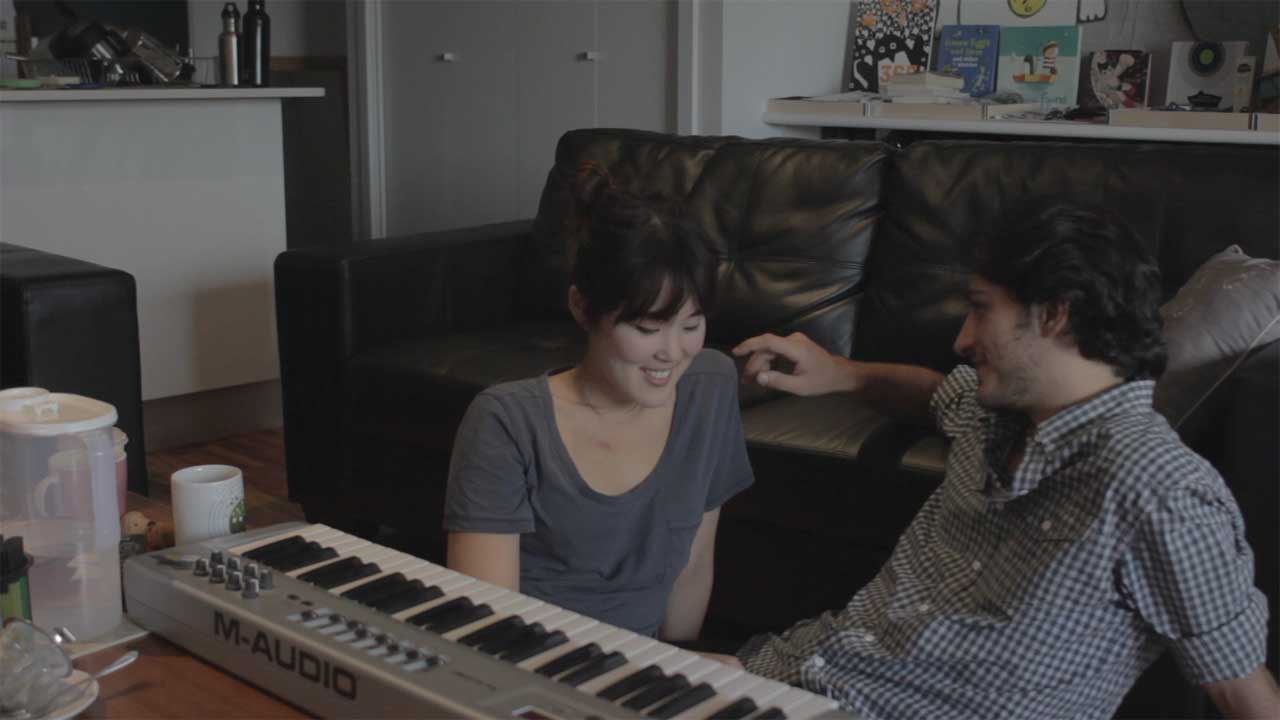Over the past month or so I've spent a lot of time workshopping scenes with the actors and then rewriting them with Jack. I first started thinking about using a process like this back in 2007, so it feels really great to be finally giving it a go. The good news is that it works fantastically well!
As I will probably (hopefully) explain in more detail in another post, we're not working off a finished script. Instead we're using what Jack and I call a "scriptment". (Hey, if it's good enough for Jim Cameron, then why not us?) Basically it's a rough outline of the scenes, usually without proper dialogue. Instead of full dialogue, we usually write in the basics of what we want the character to say and then the actor will say it in their own words.
Here's a quick example from an earlier script draft:
INT. CRAIG’S OFFICE - CONTINUING
Craig tells Jamie to take a seat.
Craig is about the same age as Jamie. His desk is littered with paperwork. Motivational posters line his wall.
Craig asks about Jamie’s experience.
Jamie hasn’t had any teaching experience per se, but he really enjoys spending time with kids and he thinks that he would make a good teacher. He’s got a lot of experience with music. He started learning piano at a young age, played in a bunch of bands, and studied jazz improv for four years at the VCA.
Craig is encouraged by Jamie’s experience at the VCA, that’s great. But does Jamie realise that he won’t be needing any of his jazz skills here?
He hands across a teaching manual.
Craig explains that everyone at this school teaches according to a fairly strict curriculum. Of course, Jamie should aim to develop a rapport which each student, but when it comes to the actual teaching, there isn’t really any room to improvise or to try things out. The parents of his students expect a very high standard of teaching, so there’s not really a lot of wiggle room.
Jamie flicks through the manual.
Jamie tells Craig that it sounds great. He’s got no problem with a set curriculum.
This scriptment forms the starting point for the workshopping process. In the workshops, the aim is not to realise a performance as close as possible to the written scene. It's actually quite the opposite! The aim is to throw around as many ideas as possible to discover what works best and what doesn't work so well. Jack and I then go through the footage, taking notes, and eventually rewrite the scene. This new version is often quite different, and it is much more specific. It's not uncommon for a new versin of a workshopped scene to be three or four times longer just because of all the specific dialogue we've added in. Here's the latest version of that same scene:
INT. CRAIG’S OFFICE - CONTINUING
Craig asks Jamie to take a seat.
Craig is about the same age as Jamie. His desk is littered with paperwork. Motivational posters line his wall.
CRAIG: Ok, so I’ve read through your CV, and it was... interesting. I can see that you’ve had a lot of practical experience with music, and it’s great to see you studied at the VCA... But I just have a couple of questions...
Jamie asks what Craig wants to know.
CRAIG: So, first of all, just to be clear: you actually don’t have any teaching experience, is that right?
JAMIE: Yes. Technically I haven’t had any music teaching experience, per se.
CRAIG: Ok, so, why do you want to teach music?
Jamie explains that his music teacher as a kid was really inspirational and made a big impact on his life. He only hopes that he can do the same for others.
CRAIG: OK, sure, great. That sounds good. Well, just to be clear, we’re not going to need your jazz skills here. We’re a classical school; we’re classically trained. How do you feel about that?
JAMIE: That’s fine, I love classical music.
CRAIG: Great! That’s exactly what I wanted to hear.
Craig pulls out a teaching manual and passes it to Jamie.
CRAIG: We’re happy to give you a trial. Teaching wise, you don’t really need to worry. We teach by a manual here. We have a fairly strict curriculum. We teach pretty much by the book. Everything you need to know is in here. All of your students will be colour-coded on the roll, which correlates to the page. So for example, pink is Level Two in the book. And so on. It’s all in the book. How does that sound to you?
JAMIE: Sounds great. I have no problem working with a curriculum.
In the scene above the differences are only subtle, but, trust me, they have a big impact when viewing the scene! Many scenes have been changed far more drastically. When writing, it can be hard to conceptualise what kind of impact the physicality of a scene or the nuances of a performance can have. Often, Jack and I will be wrestling with a scene, trying to work out how we can communicate some information to the audience without making the scene boring. The workshops have been absolutely invaluable for this! There are several scenes where we have thrown out almost all of the written dialogue and replaced them with a much more physical scenario. Film is a visual medium, with human performance at the forefront. In my opinion, it's far better to take advantage of what the actors can bring to the table instead of relying on boring exposition.
I recently watched the commentary for the film Blue Valentine. In it, director Derek Cianfrance mentioned that he was "alergic to phony acting". I definitely feel the same way about bad peformances, and I also feel this way about poorly conceived narratives. Quite often, I'll be watching a film and I'll get the feeling that things don't quite add up. A character's actions just don't seem to make sense. Why on earth would they do that? What possible motivation could they have? In these circumstances, it seems as though the actors are being forced to behave in a certain way simply because the script demanded it - even if those actions make no sense whatsoever! Sometimes I wonder if such films could have benefitted from a similar workshopping process. Of course this approach may not suit all films (action films for example), but I can think of a lot of indie dramedys which could have used some workshopping. With Play It Safe, I am trying to find all this phoniness before we actually shoot the film. I'm trying to find all the moments which grate or don't ring true in the workshops so we can cut them out and replace them with something better. Why wait for the premiere to find out that a scene sucks? It's too late to change it then!
Ok, that's probably enough delirious ranting for one day. I have a lot more that I'd like to discuss about the workshopping process, but it will have to wait. For now, here's some photos from the last few workshops:










